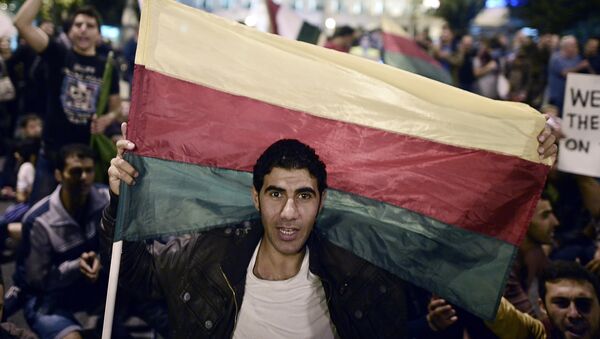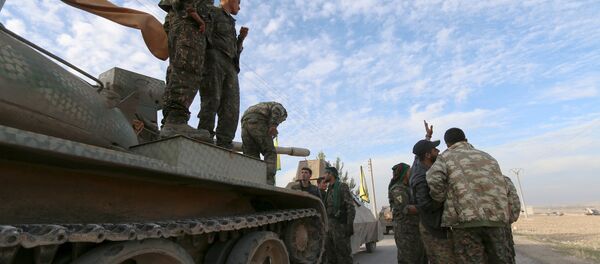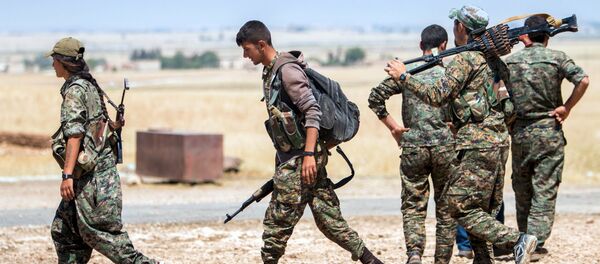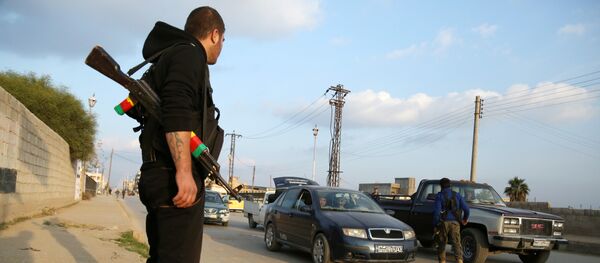In ultimate form, Erdogan demanded that the US make a choice.
"How can we trust you? Is it me that is your partner or is it the terrorists in Kobani?" Erdogan said, as cited by AP.
On February 1, a delegation led by McGurk arrived to a Kurdish airport that is used by the US Air Force. The team comprised 17 people, including representatives of Britain and France. The US envoy held talks with Kurdish officials and visited some combat zones, including Kobani near the Turkish-Syrian border. This was the first visit by a US official to Syria since 2012 when the US embassy in Damascus shut down.
Commenting on the move, Erdogan underscored that Ankara considers the PYD a "terrorist group." Nevertheless, the US has long supported Kurds fighting against Daesh in Syria.
The news came amid the growing tensions between Washington and Ankara, and the Kurdish problem is continuing to paint Erdogan into the corner.
"Relations between the US and Turkey were always difficult. By 2006, America established an autonomous de-facto region in Iraq – Iraqi Kurdistan. Since then, US-Turkish relations have shown signs of strain," Alexei Fenenko, a security analyst at the Russian Academy of Sciences, told Svobodnaya Pressa.
In summer 2015, Turkey carried out airstrikes in Syria against both Daesh and Kurdish fighters. In July, a meeting between NATO foreign ministers was held in Antalya, resulting in Turkey ending its military operation in Syria.
It seems that Washington made it clear it would not approve attacks on the Kurds, the analyst said.
"However, there is a question – why is Erdogan presenting his ultimatum only now? I can't rule out that Washington has promised something to Ankara if it was against the Russian operation in Syria. Erdogan may have demanded unconditional support, but the US said no," he explained.
The US does not consider Turkey a key partner.
"Washington is using Ankara in its game against Russia, and at the same time the Americans would not even guarantee Turkey’s territorial integrity. For Erdogan, this is a warning sign," Fenenko concluded.




